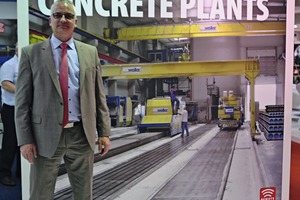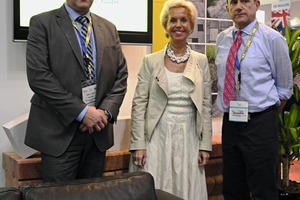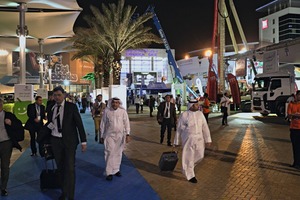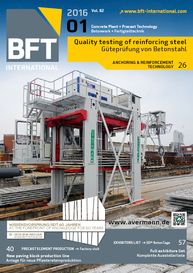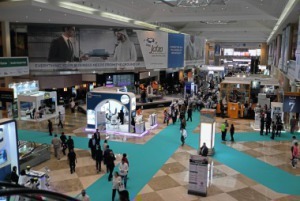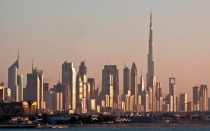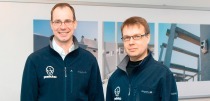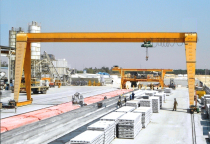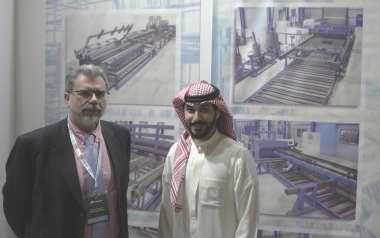Economic Upturn
For the last 36 years, the Middle East‘s construction industry has hosted an annual gathering at The Big 5 in Dubai. Once again, this year saw 3,000 exhibitors and industry experts converge on the exhibition grounds – which included an additional hall this time around – for the four-day event. After China, Italy and Turkey, Germany was the country with the most companies representing it. In addition to the Made in Germany label that all of the companies carried, the four federal German states of Hesse, Saxony, Bavaria and Baden-Württemberg offered their companies a separate platform under their respective coat of arms. The construction sector‘s resurgence in the United Arab Emirates (UAE) and Saudi Arabia over the last several years and, more recently, neighboring Iran made for a positive atmosphere. For the states in the Gulf Cooperation Council (GCC), the total value of finalized contracts for the construction industry is projected to be US$193.65 billion for 2015.
Major events such as the Expo 2020 Dubai and the FIFA World Cup in Qatar in 2022 are shaping the future. If, in addition to the sports facilities, the related construction work for housing, hotels and construction is considered, significant capacities come into play.
Next to Bauma in Munich and CTT in Moscow, The Big 5 has long grown into one of the key international trade fairs in the construction industry. Almost the entire area of Sheikh Saeed Hall was filled by companies from the concrete and precast industry. Since 2011, an integral part of The Big 5 has been the Middle East Concrete and PMV Live (Plant, Machinery and Vehicles) fairs – they attract 450 exhibiting companies.
More Iranian visitors
Weiler GmbH claims that it has been established in the Arabian Gulf for over 50 years. The specialized machinery manufacturer for the precast concrete industry remained steadfast when the effects of the global financial crisis were felt in Dubai. That paid off, reports Sales Director Christoph Müller-Bernhardt – the company expanded its network of precast plants to more than 45 locations in places such as Iran, Iraq and North Africa.
Masa has a similar success story. The plant manufacturer has been taking part in The Big 5 since 1996 and was personally represented by company owner Olga Vercammen. For the last two or three years, Masa‘s business has been noticeably revitalized – the company claims that there are now 70 plants in the Emirates alone. In addition, the increased number of Iranian visitors was positively noted. Masa‘s sales director and management member, Frank Reschke, says that the company‘s innovations will not be presented until Bauma 2016 in Munich.
Reliable customer service
The Arabian-Persian Gulf still considers Made in Germany to be a first-class label. German products enjoy a high level of trust, and one of the reasons for this is that the customer service is often more reliable than that of the competition. Kurt Mayr, Area Sales Manager at MBK Maschinenbau GmbH, confirmed that for his company, the UAE had the strongest market after the USA. The boom in the Emirates for products such as the MSM-B mesh welding machine from MBK would, in some respects, cushion the decline of the Russian market. However, the markets of the Maghreb countries of North Africa, which The Big 5 also covers, are unfortunately still very subdued in their economic development. MBK will very likely be back at The Big 5 in Dubai next year.
Many of the German participants at the show noticed the increase in Turkish companies at The Big 5. Many experts have determined that there is hardly a market segment in the construction sector where Turkey is not represented.
As in previous years, the passageway through this year‘s Big 5 showed a reliable picture of the state of the economy in the Gulf. Despite the current low oil prices, many countries – especially the United Arab Emirates – are once again betting on economic expansion and innovation. The German concrete and precast industry will continue to benefit from this.
Text: Christian Brensing, M. A.


